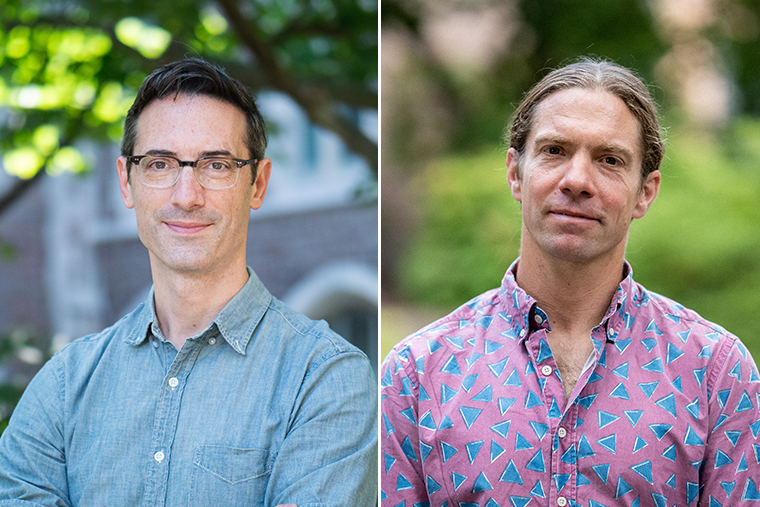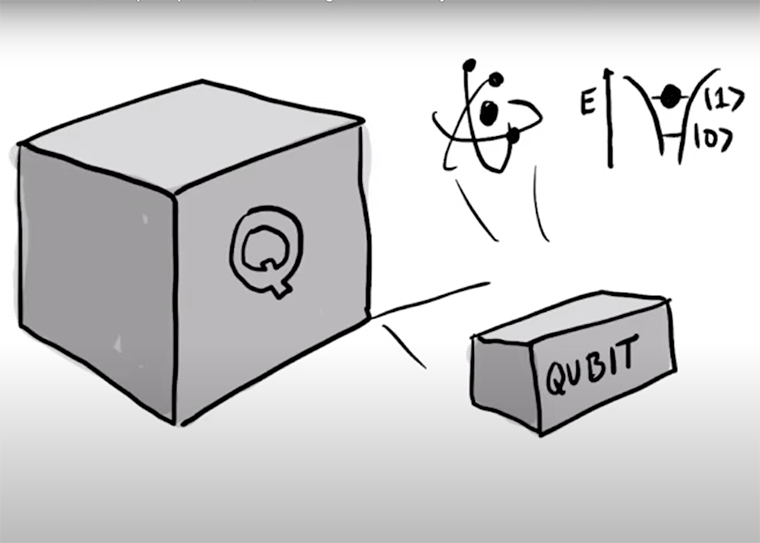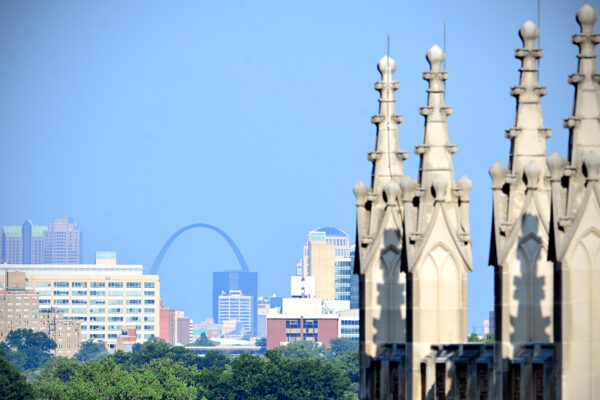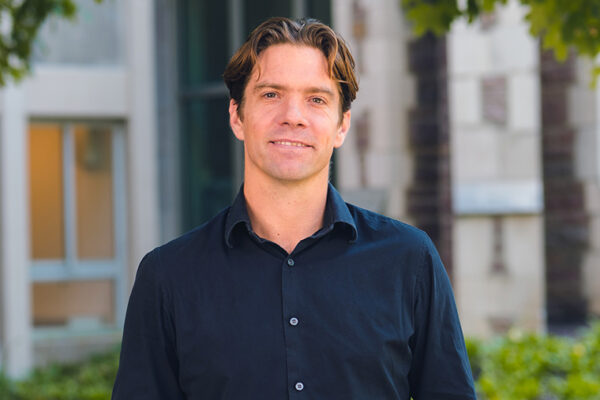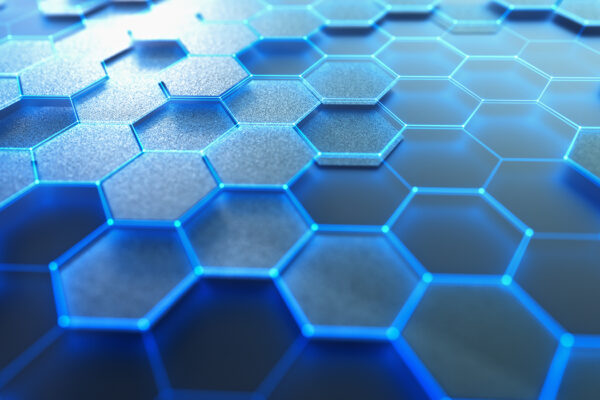Two Washington University in St. Louis researchers will advance the scientific frontier as 2022 Experimental Physics Investigators with the Gordon and Betty Moore Foundation.
Erik Henriksen, associate professor of physics, and Kater Murch, professor of physics, both in Arts & Sciences, will each receive $1.25 million for their projects over the next five years. They were selected from a competitive nationwide pool of applicants.
Henriksen and Murch join 14 other investigators in the first cohort of the Moore Foundation’s Experimental Physics Initiative, according to an Oct. 27 announcement. This funding is envisioned to allow the physicists, during some of their most creative years, to concentrate on their research and build collaborative relationships that enable innovative discoveries.
“The breadth and scientific audacity of experiments proposed by these individuals is stunning and inspiring,” said Theodore Hodapp, program director in the Experimental Physics Investigators Initiative at the Moore Foundation. “Stunning, as well, is the creativity and the capability of these scientists.”
“Erik Henriksen and I started our groups at Washington University at the same time in 2013. We’ve become fast friends and close collaborators as our groups have grown and our research interests have intertwined,” Murch said. “It’s an incredible honor that we both have been awarded this prestigious opportunity.”
The fundamental building blocks of many quantum technologies, such as a quantum computer, are quantum bits, or qubits. Murch’s project strives to advance the state of the art of qubits using an exciting new technology.
“We form qubits by trapping single electrons in vacuum just above a solid surface of neon — a noble gas which has a solid phase at low temperature,” Murch said. “Each electron has a spin which can take two possible states, up and down. We will use these two spin states as qubits and build an interface between these qubits and existing superconducting qubit technology.”
Henriksen will investigate the physics of quantum spin liquids, a phase of matter that exhibits an exotic form of magnetism. He plans to create and probe quantum spin liquids in atomically thin materials which, by virtue of having no interior, can be readily manipulated to alter or enhance the magnetic couplings underlying the spin liquid state.
“Exotic types of magnetism including the quantum spin liquids we are studying may hold the key to developing quantum computers capable of breaking codes and searching faster than Google,” Henriksen said.
Both Henriksen and Murch are founding members of the university’s Center for Quantum Leaps and are helping to establish a convergent quantum sciences and engineering graduate training program across the St. Louis region, “Linking Quantum Sensing Technologies across Disciplines,” or LinQ-STL.
“We are tremendously excited about the new Center for Quantum Leaps, which promises to enable transformative discoveries and collaborations among faculty in Arts & Sciences, McKelvey Engineering and the School of Medicine,” said Feng Sheng Hu, dean of Arts & Sciences at Washington University. “Kater and Erik embody this potential, and I am thrilled that the Moore Foundation has recognized their work.”
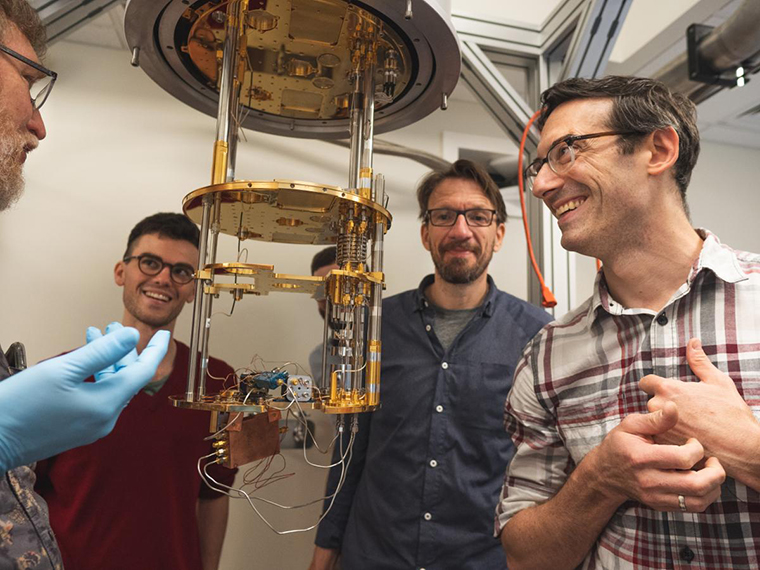
The Moore Foundation said it also will support the work of this and future Experimental Physics Investigators cohorts by providing equipment grants and hosting convenings to share new ideas and encourage collaborations.
A focus of this initiative is to support the investigators as they strive to make their research groups inclusive and advance equity in their departments.
Catherine Mader, program officer in the Experimental Physics Investigators Initiative, described the foundation’s alignment this way: “It’s critical to support not just those who have had opportunities and resources to excel, but to support adoption of practices that will expand access to these opportunities in the future. Helping these researchers find resources and adopt practices to enhance equity and inclusion is an important way the foundation can help all group members produce their best science.”
“These awards reflect the increasing importance of quantum information and quantum materials to society in general and to the growing community of quantum-oriented researchers at Washington University in particular,” Henriksen said.
